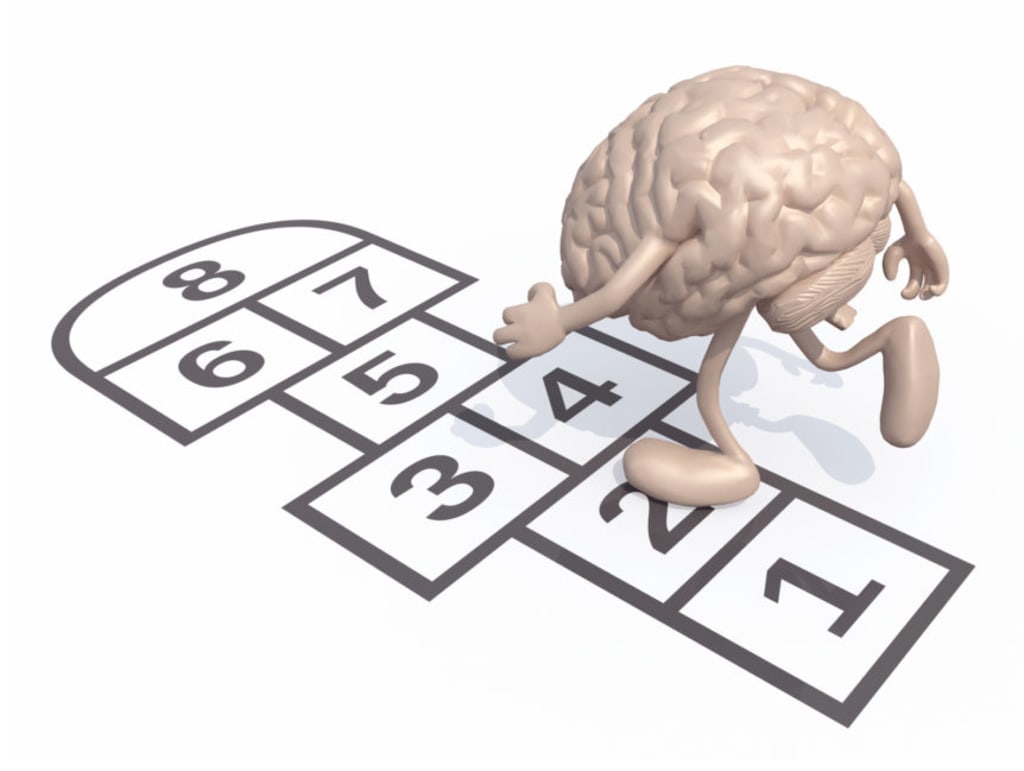How Physical Exercise Makes Your Memory Work Better
A lot of labs and universities all over the world are exploring the links between physical and mental fitness.

Exercise can improve your memory!
Physical exercise is equally important for your body and mind. Studies now reveal that exercising can help you not only build strong muscles, keep a healthy body weight and prevent diseases. Regular physical activity also leads to memory enhancement and development of thinking skills.
The brain is often described as a muscle. So, you should train your brain like the rest of the muscles in your body with the help of movement. Today, researchers consider moving as the great medicine for the mind and stress that your mental health improves every time you get going.
How Exercise Affects the Brain
Everyone knows how hard it can be to motivate yourself to join the gym and start working out. It is really difficult for most people to make exercise a habit. Perhaps it will be easier for you to do that if you understand why exercise is good for your mind as well as for your body and how physical activity affects your brain.
A lot of labs and universities all over the world are exploring the links between physical and mental fitness. Experts say that working out affects the brain and improves memory in many ways.
Firstly, movement encourages brain cells to grow, especially as we get older. Any form of exercise can boost the release of growth factor, decrease inflammation and reduce insulin resistance, which makes it easier for the brain to grow new neuronal connections.
“Even more exciting is the finding that engaging in a program of regular exercise of moderate intensity over six months or a year is associated with an increase in the volume of selected brain regions,” says Dr. Scott McGinnis, an instructor in neurology at Harvard Medical School and a neurologist at Brigham and Women's Hospital.
In addition, the hippocampus is known as the part of the brain that responds strongly to aerobic exercise. Besides, this part of the brain is placed at the core of the brain's learning and memory systems. This fact directly explains the great memory-boosting effect of cardiovascular fitness.
Another benefit is that physical activity stimulates brain-building hormones, which in turn lead to the perfect environment for the proliferation of brain cells.
Moreover, regular exercise increases heart rate and allows to pump more oxygen to the brain and it starts functioning at a higher level. Don`t forget that your brain absorbs 20 percent of all the oxygen in your body and thanks to cardio that enhances blood flow to the brain, you can provide it the right level of brain food.
Positive Effects of Exercise on the Brain
However, physical activity is much more beneficial for your mental health than meets the eye. Exercise tends to improve sleep habits, concentration, and mood, it can decrease anxiety, stress levels and fight depression.
Exercise Helps to Control Stress
“Strength of mind is exercise, not rest,” thought Alexander Pope. This statement may sound a bit strange, but it is true!
Almost any exercise helps actually alleviate stress and, moreover, deal with negative effects that stress has on the part of the brain responsible for learning and memory. When you're working out, your body temperature and blood circulation in your brain increase and, in such a simple way, your body's reactivity to stress gets better.
Exercise Boosts Concentration
Physical fitness also influences your concentration. The results of the study conducted in one Dutch school have shown that it is really possible to improve the attention spans of pupils with the help of aerobics-style exercise. 20-minute warm-up at the beginning of each lesson allowed children to become more adapted at ignoring distractions, focus better on the tasks and multitask successfully.
Exercise Makes Your Life Happier
The study of Stanford University found that exercising can really make people happier. This can be explained because physical fitness balances adrenaline and cortisol (well-known stress hormones) with the production of endorphins (this hormone is considered a natural mood enhancer and painkiller). Thus, the increased level of endorphins in your body creates the feeling of relaxation and optimism after physical activity. By the way, endorphins can also work like antidepressants just without any unwanted or harmful side effects on your body.
Exercise Builds Self-Esteem
No matter what form of exercise you're performing, any sports activity can immediately make you feel more self-confident. Exercising is a wonderful way to test your own endurance, power, and motivation. Expressing the conviction in your physical health helps you boost your mood and makes you feel more capable of setting new goals. When other people also notice some positive changes in your body, this causes the improvement of your self-esteem and better socialization.
“Exercise does something that medication doesn't. It proves a new identity to yourself. Each time you finish a workout, you reap the benefits of an increased sense of self-confidence. The cumulative impact of these 'small wins' is enormous,” says James Clear, a habits blogger.
Best Ways to Improve Memory
What should you do to boost your memory? Start working out! But what exercise is best for you?
Most researchers say that walking is a universal exercise that fits everyone's needs and has a positive effect on the brain.
“It is likely the other forms of aerobic exercise that get your heart pumping might yield similar benefits,” states Dr. Scott McGinnis.
However, if you don't want to walk for some reason, you can consider other exercises like swimming. cycling, tennis and so on.
Choose the Right Physical Activity and Motivate Yourself
The first and the main thing you need to do in order to boost your memory is to choose the proper physical activity. This means that you should perform such form of exercise that gives you pleasure and meets your needs.
According to recent studies, yoga and regular meditation practice can help you fight depression or reduce stress. Regular walking affects creativity and imagination positively. Dance classes are great if you'd like to improve memory and coordination. Aerobic exercise is ideal for enhancing brain function and so on.
Of course, it is difficult to stay motivated when starting exercising. And if you realize how important physical fitness is for your brain, you can ask your friend or friends to join you. In such a way, you'll get an additional incentive for progress and you won't be bored because when you go running or walking it will be good to talk to someone.
Start Something New
“The brain wants to learn new things… when the brain is passive, it has a tendency to atrophy,” says Dr. Robert Bender, a medical director of the Johnny Orr Memory Center and healthy Aging Institute in Des Moines, Iowa.
Most researchers warn that people who pay less attention to the things around them and focus only on their comfort zones are more vulnerable to dementia.
So, try to avoid ruts and boredom! Never stop! Keep moving all the time in both in a literal and figurative sense! Be always ready to try some new intellectual or physical activity that can get you out of your comfort zone and make you develop new skills.
Stick to the Proper Diet
Your brain requires the right fuel as well as your body. Eat more fruit and vegetables, don't forget about omega-3 fatty acids, drink green tea and limit saturated fat and alcohol.
“Approaches to brain health include a well-balanced diet low in fat, low in cholesterol, and high in antioxidants,” states Dr. Bender.
Get Enough Sleep
The researchers from Lübeck University in Germany found out from a recent study that sleep helps memory formation as well as improves gelling of memory for recently encoded information.
Don't forget that the amount of sleep is very important for your memory. You should get on a regular sleep schedule and sleep at least 7.5 hours each night. Sleep is crucial for your memory consolidation, creativity, critical thinking skills, and learning. So try to go to bed at the same time and get up at the same time. Don't break your sleep routine even on weekends and holidays.
Written by Andrew Guerra





Comments
There are no comments for this story
Be the first to respond and start the conversation.